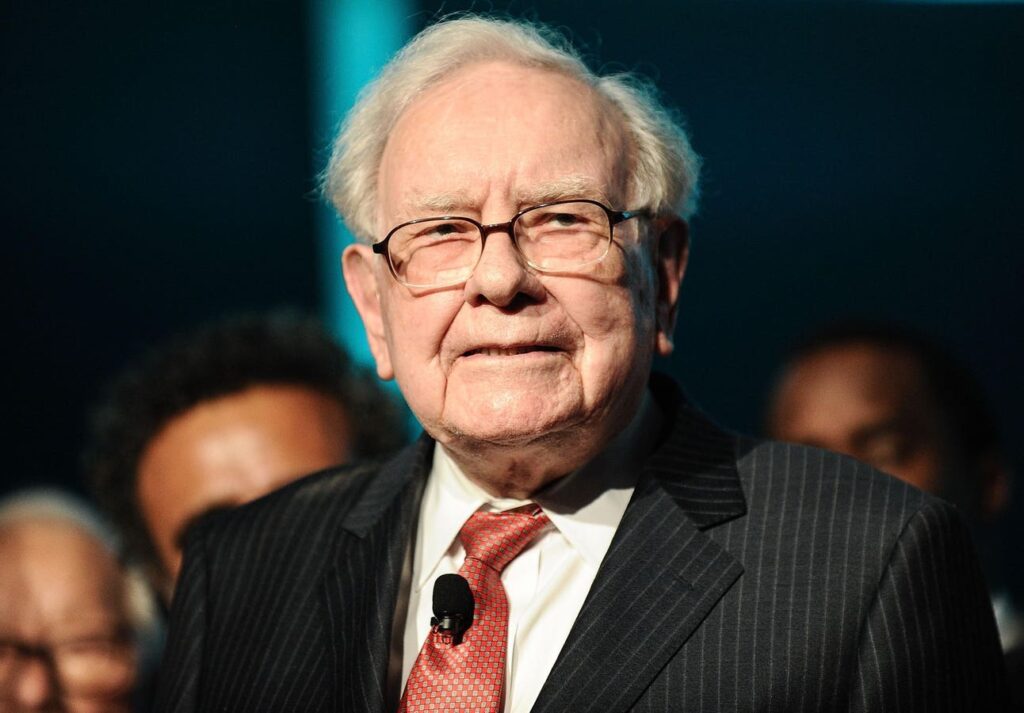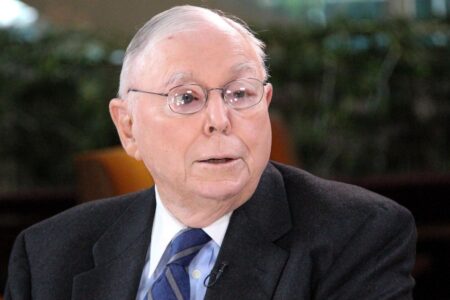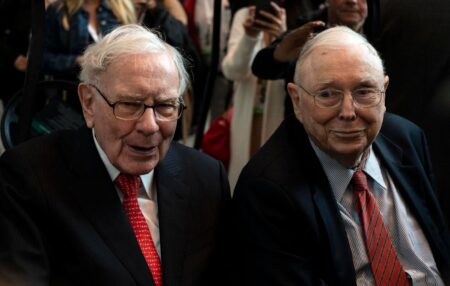Berkshire Hathaway Chairman and CEO Warren Buffett began this latest odyssey of investing in Japanese stocks with a roughly $6 billion purchase right around his 90th birthday in August 2020. Berkshire Hathaway announced that their wholly-owned insurance subsidiary had acquired about 5% of five Japanese trading companies: Itochu Corp., Marubeni Corp., Mitsubishi Corp., Mitsui & Co. Ltd., and Sumitomo Corp. Buffett indicated that these were intended to be long-term holdings and Berkshire may increase its stake to up to 9.9%.
Buffett and Berkshire’s Vice Chairman-Non Insurance, Greg Abel, traveled to Japan in April 2023 and met with the management of each of the five companies. Buffett revealed then that Berkshire increased its ownership in these companies to 7.4%.
Berkshire announced on Monday that it had increased its holdings in these five companies to an average ownership interest of 8.5%. Berkshire’s statement noted that the value of these investments “considerably exceeds that of Berkshire-held public stocks in any other country outside of the United States.” Further, the release notes that Buffett and Abel “hope, eventually, to own 9.9% of each of the five companies.
So far, the results of these investments have been spectacular for Berkshire shareholders. Since the end of August 2020, when the stock purchases were announced, the average annualized total return has been 35.9% in U.S. dollar terms versus 9.9% for the S&P 500 and 5.0% for the MSCI Japan index.
The return in U.S. dollars understates the returns to Berkshire, though. Because Berkshire Hathaway effectively removed the currency component of their Japanese investments by issuing corporate bonds denominated in Yen, it is more appropriate to look at the return on the stocks in local currency terms. Since the end of August 2020, the average annualized total return has been 50.9% denominated in Japanese Yen versus 16.6% for the MSCI Japan index and 9.9% for the S&P 500.
Between the appreciation of the securities and the additional investments, Berkshire’s stake in these five publicly traded Japanese companies increased to around $21 billion. To put this into perspective, Berkshire owned a little over $21 billion of Chevron
CVX
CVX
This analysis looks at a host of valuation measures to surmise what Buffett might be seeing in his portfolio of Japanese trading companies, including 12-month forward estimated: price-to-earnings (P/E), price-to-cash flow (P/CF), enterprise value-to-earnings before interest, taxes, depreciation and amortization (EV/EBITDA), and dividend yield. In addition, since Buffett tends to like free cash flow generating companies, the trailing free cash flow yield is listed.
These five Japanese trading companies are categorized as industrials but don’t fit neatly into this category. There does not seem to be near the scale of these wholesale, business-to-business firms operating outside Japan. While Japanese trading companies are involved a general trade across many industries, they have expanded into value-added services and are heavily involved in investment, like private equity. In other words, comparing the valuation of traditional industrial companies is not likely dispositive but is provided for completeness.
Berkshire’s Japanese trading companies sell at a sizable discount to U.S. and Japanese market valuations across most metrics. The companies have more debt than the average Japanese firm but produce prodigious free cash flow. The sizable free cash flow generation allows them to pay a relatively high dividend yield and make significant share repurchases. The ability to continue to produce substantial cash flows and return them to shareholders in two ways would be an attractive attribute for Buffett.
The valuation characteristics of the individual holdings show less variation than one might expect. Buffett likely chose to buy the basket of trading companies because, as a group, they have a business impact unique to and revered in Japan. With relatively similar valuations, Berkshire can get significantly more money invested in the idea while remaining below the 10% ownership threshold.
Japan’s domestic economic growth has been anemic for many years, but Japan’s companies, including its trading companies, are very exposed to global GDP growth. The post-covid period may also boost Japan as companies seek to diversify supply chains beyond China. Overall, Japanese stocks look relatively inexpensive, but weakness in the Japanese currency can dent returns for U.S. investors, which complicates direct investment in these trading companies for most investors. Indeed, one could invest in Berkshire Hathaway (BRK/A, BRK/B) to get some exposure. For a more diversified exposure to Japanese stocks with a focus on cash-generating dividend payers while removing the currency risk, WisdomTree Japan Hedged Equity ETF (DXJ) is worthy of consideration.
Read the full article here













